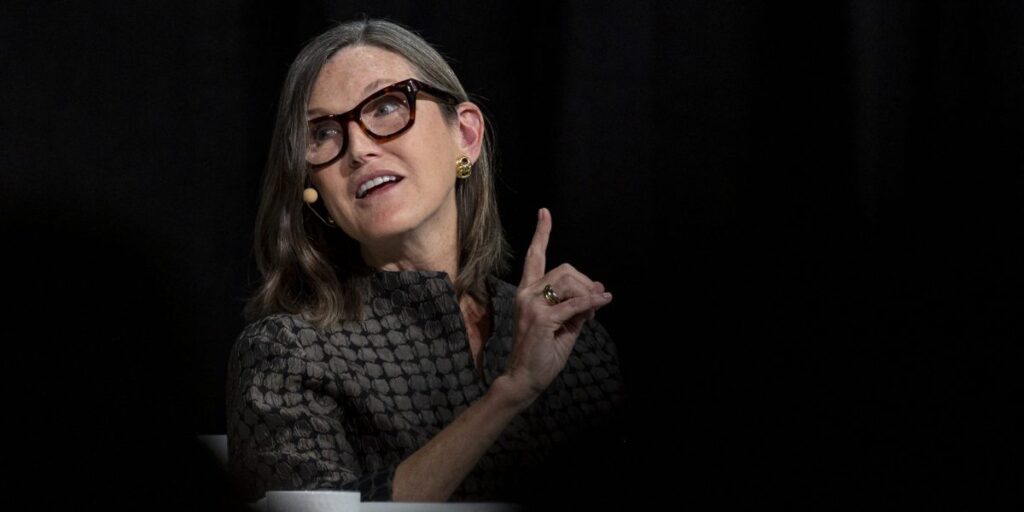
Cathie Wood, CEO of investment management company Ark Invest, believes the digital wallet industry will consolidate. With traditional banking in decline, whoever monopolizes the wallet market will wield significant power in the financial sector, she said.
In a conversation with Coinbase CEO Brian Armstrong at the State of Crypto Summit on Thursday, Wood said there is a new generation of consumers who want a digital wallet to be their one-stop shop for all online payments. Citing the lack of traditional banks in the digital wallet space, “it really is a winner-take-most opportunity,” she said.
Wood repeatedly referred to WeChat Pay, the digital wallet of Chinese social media giant WeChat that allows users to make mobile payments and online transactions, saying it sets a “model” for how the market will develop. WeChat Pay functions as a “banking branch in your pocket,” she said, offering all forms of financial services and commerce. Since its first release in 2013, the app has amassed over 1.13 billion active users. Along with Alibaba’s Alipay, these two apps account for more than 90% of all mobile payments in China.
Digital wallets can be roughly described as phone applications that allow peer-to-peer transactions, real-life purchases and online payments. Major players include PayPal, its subsidiary Venmo, Zelle and Cash App, which are digital and have no physical branches.
But the services offered by these fintech companies are quickly replacing traditional banking services. Digital wallets accounted for half of all e-commerce transactions last year, according to Worldpay’s 2024 Global Payments Report.
Referring to a generation coming of age that may never see the four walls of a traditional bank, Armstrong said he wants cryptocurrency to be seen as a serious contender in the digital wallet race. Like Wood, he predicted that the phone will become interchangeable with the wallet, and consumer demand for a single financial account “where they get paid, shop and send money” will become the norm.
Despite Coinbase’s reputation as primarily an exchange, Armstrong noted “real potential for innovation.” [in crypto]occurs as a result of these peer-to-peer transactions.”
The presence of cryptocurrency in the digital wallet space is growing. In April, PayPal announced that users can make free global transfers of its stablecoin PYUSD, and the Cash App has been allowing users to buy and sell Bitcoin since 2018. Last week, Coinbase debuted its stablecoin PYUSD. Smart wallet, a self-custody crypto wallet that replaces the time-consuming recovery phrases, apps, and extensions typically associated with accessing DeFi wallets that hold some users back with biometrics like FaceID and fingerprints. Additionally, Smart Wallet can receive funds from both the user’s wallet and their Coinbase account balance.
In a competitive and saturated digital wallet market, Armstrong cited “interoperability” as DeFi’s comparative advantage. In other words, a Coinbase wallet transaction does not have to be done with another Coinbase wallet, unlike, say, PayPal.
The CEO compared payments to flowing water: they follow the path of least resistance. Instead, he predicted that a quarter of global GDP would come from cryptocurrency rails (the term for payment platforms that support the transfer of digital assets) within a decade. Armstrong concluded with an ambitious end goal: making Coinbase wallets the “primary financial account” for the next generation.


